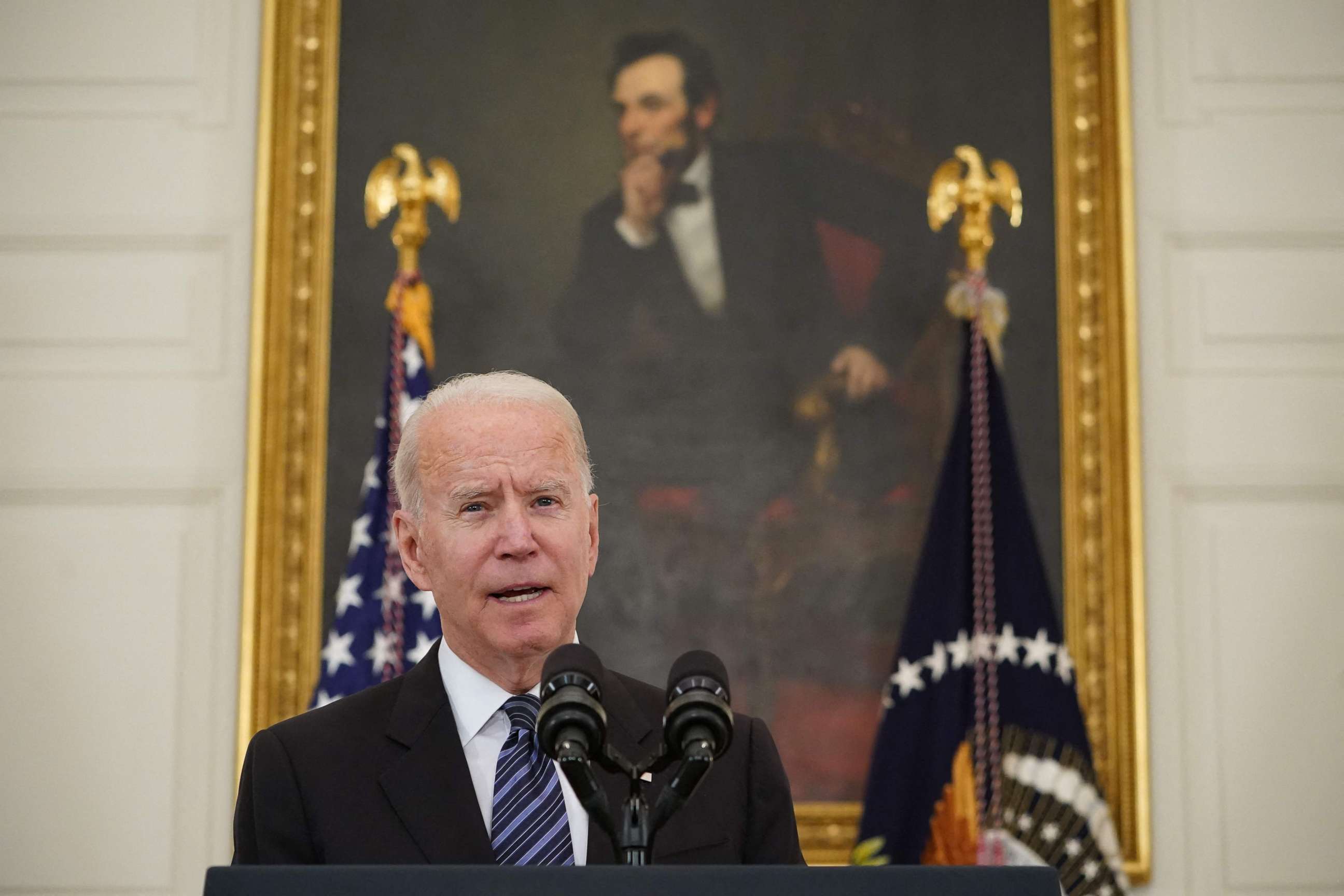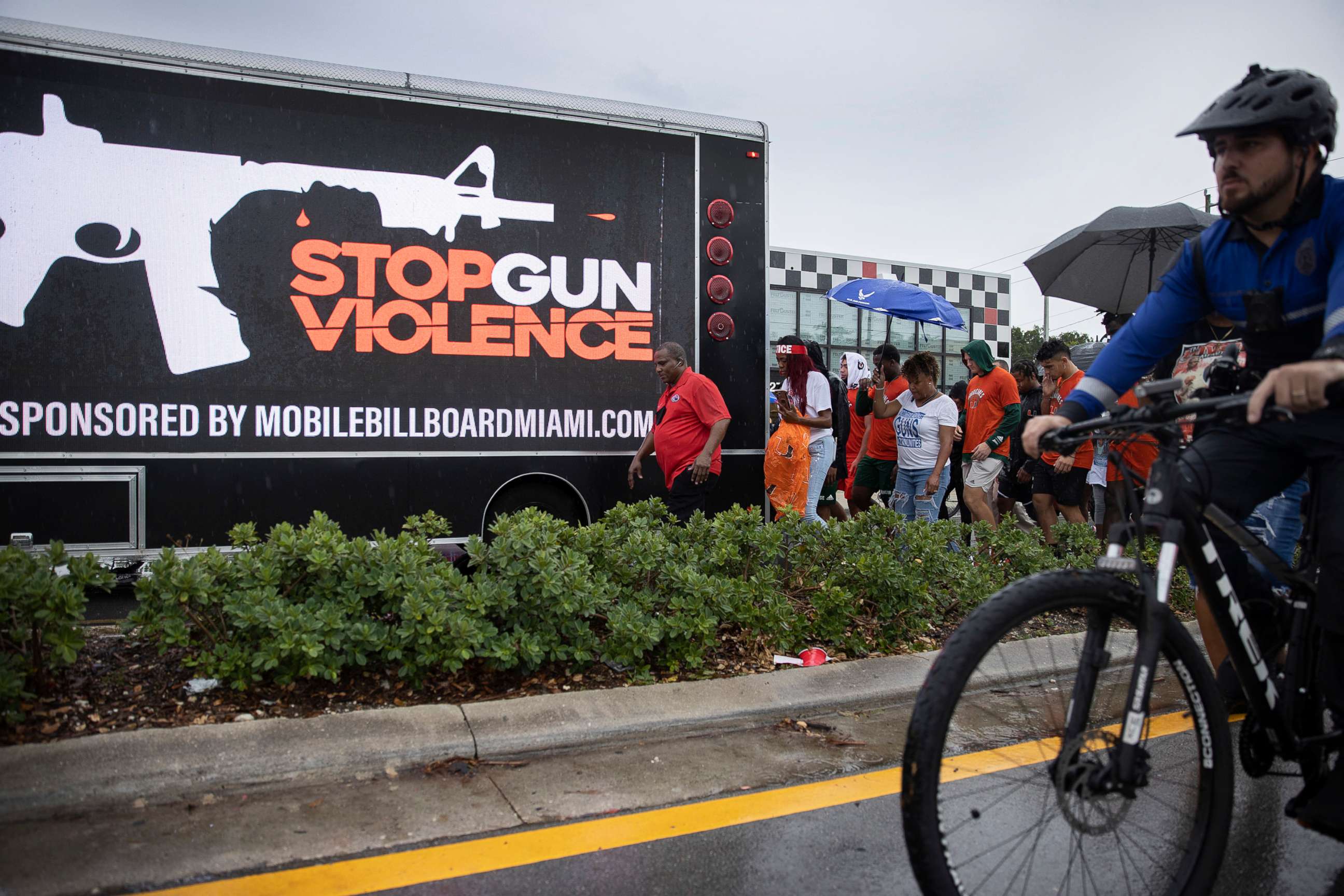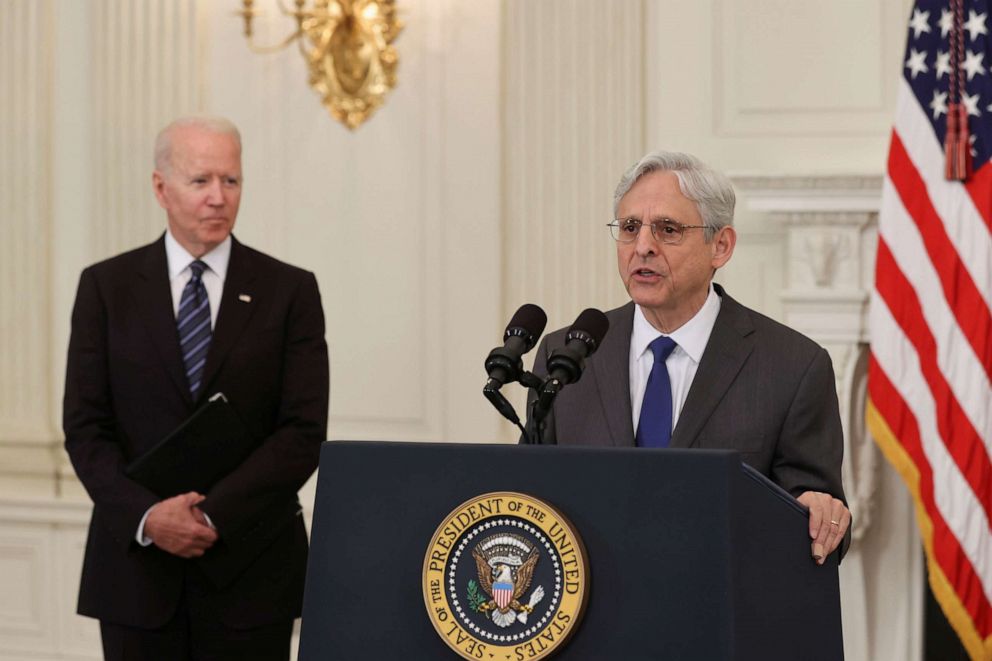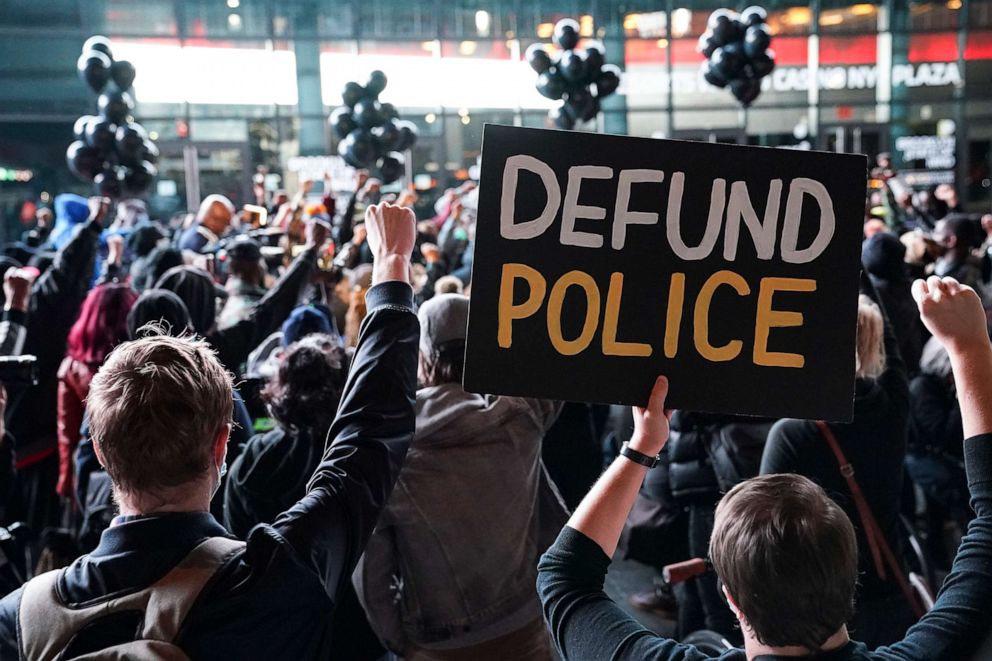Biden unveils strategy to stop gun crime as summer violence spikes
He called to let communities repurpose funds intended for COVID-19 relief.
President Joe Biden on Wednesday announced a range of actions targeting rising gun violence, according to the White House, as homicide rates jump heading into the summer months -- and Republicans blame him for it.
He began his remarks by saying the rise in violent crime dates back to last year, before he took office.
"It has spiked since the start of the pandemic over a year ago. Crime historically rises during the summer. And as we emerge from this pandemic with the country opening back up again, the traditional summer spike may even be more pronounced than it usually would be," he said.

He laid out a "comprehensive strategy" that will target law-breaking gun dealers, provide federal resources to police departments for gun-crime enforcement and allow communities to repurpose millions of dollars of federal coronavirus relief funding for programs proven to prevent gun violence.
In doing so, Biden is seeking to establish his footing amid GOP attacks over increased violent crime in American cities, many of which are run by Democrats.
Gun violence has driven much of that increase recently and Biden framed the issue through that prism -- unlike Republicans, who blame high homicide rates on Democrats who called for police funding to be cut last year.

In reality, demands to "defund the police" amid last year's racial justice protests amounted to modest funding reductions in some cities, while homicides have risen across the country, according to the Associated Press.
"This shouldn't be a red or blue issue," Biden said. "It's an American issue."
Before Biden pushed back against relentless Republican attacks that he's to blame, White House press secretary Jen Psaki noted Tuesday that violent crime has gone up not just "over the last 18 months" but "over the last five years or so."
The president intends to "give state and local officials a number of tools" to help them reduce gun crime, a senior Biden administration official said Tuesday.
The administration will allow communities to spend some of the funding they received as part of this spring's $1.9 trillion COVID-19 relief bill funding to combat gun crime, such as investing in summer jobs programs for youths; hiring more police officers and court personnel; spending on gun-violence enforcement; and paying for more nurses, counselors and social workers.
The money could come from the $350 billion in state and local funding included in the relief bill signed into law in March, and in some cases from the $122 billion the bill set aside for schools, according to senior Biden administration officials.
Other measures include establishing a "zero-tolerance" policy for gun dealers who break the law; embedding federal law enforcement officials with local police departments; and hiring more formerly incarcerated people for jobs in the federal government, according to the White House.

Biden and Attorney General Merrick Garland met with several mayors, advocates and a police chief on Wednesday before making their remarks.
On Tuesday, the Justice Department also announced it was launching gun trafficking "strike forces" to five U.S. cities experiencing rising violent crime levels where law enforcement officials hope to crack down on stolen and illegally purchased firearms.
But the White House has struggled to explain what prompted the president to focus on crime this week in particular -- with Psaki presenting his remarks, instead, as a continuation of his previous support for gun control measures and community policing.
Even as the White House touts the limited steps Biden has taken to regulate hard-to-track "ghost guns" and accessories that make pistols more like rifles, gun-control advocates maintain that real action needs to take place in Congress.
On Capitol Hill, the Democratic-led House of Representatives passed two bills that would expand and strengthen the use of background checks for firearms purchases. But the measures have stalled amid Republican opposition in the Senate.
The president, meanwhile, has used his bully pulpit to advocate for legislative progress on guns, but he has prioritized other issues: the coronavirus pandemic, rebuilding the economy and passing a major infrastructure package.
On the campaign trail, Biden made bigger promises on guns on which he has yet to follow through, including banning the importation of assault weapons.

Guns are at the center of rising homicide rates nationwide. The number of killings has jumped even as other types of crime are becoming less common.
Homicides spiked by 30% in 2020 compared to the year before, according to a study released earlier this year by the National Commission on COVID-19 and Criminal Justice.
And in the first three months of 2021, the number of homicides increased by 24% compared to the same period in 2020 and by 49% compared to the start of 2019, the researchers said.
While other violent crimes, like aggravated assaults and gun assaults, saw modest increases in 2020 compared to 2019, the number of non-violent crimes like residential burglaries dropped, the study found.
Last year also presented a unique variety of circumstances that could have impacted the shifting rates, such as police officers pulling back over fears of contracting COVID-19 or criminals taking advantage of protests over police killings.
After he concluded his formal remarks Wednesday, a reporter asked, "Mister President, are you still holding out hope that Congress can pass another weapons ban?
"I never give up hope," he answered.
ABC News' Alexander Mallin contributed reporting.




